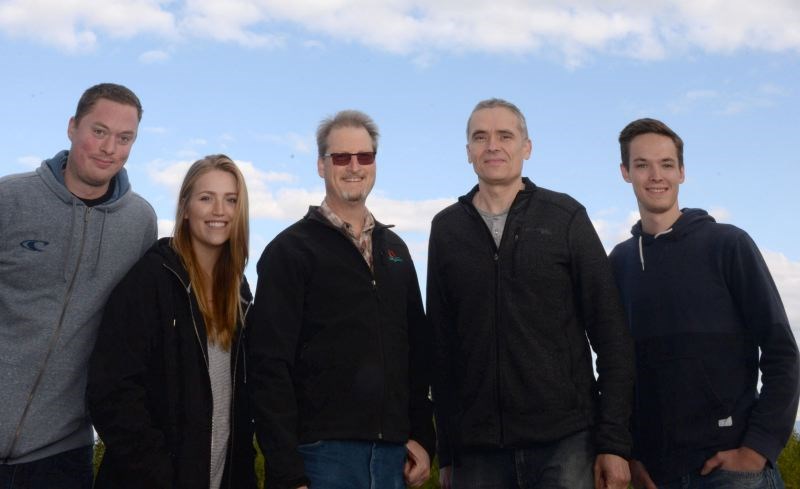Prince George's air quality is getting better because of the work by the city's heavy industry, according to UNBC researchers.
Environmental science professor Dr. Peter Jackson and a group of undergraduate and graduate students analyzed 12 years of air quality data in Prince George and found that the largest improvement in air quality is when the wind pushes the air from the heavy industrial zone into the city centre.
"When winds come from the east, which is carrying the air from the heavy industrial zone, the trend over the past 12 years is a pronounced decrease in the fine particulate matter in the air," Jackson explains.
The students worked closely with the Prince George Air Improvement Roundtable (PGAIR) and presented their findings to the organization's board of directors.
Among the findings are that fine particulate matter decreased overall by 29 per cent in the last 12 years, but that was primarily driven by decreases of 35 per cent when the wind came from the east. Industrial plants in Prince George have been investing in technology to reduce the amount of particulate matter released into the air for the past decade but measuring the effectiveness of their investments has been a challenge, according to Jackson.
"We know that industry, especially the pulp mills, have been spending hundreds of millions of dollars on upgrades that reduce the amount of particulate matter they release into the air," Jackson says. "It has been frustrating not being able to detect that in the actual monitoring data, but this study suggests that what they are doing is working."



